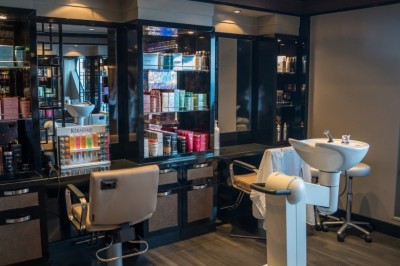Different kinds of work places for cosmetologists
Interestingly enough, there is employment for cosmetologists besides salons. One can work in a department store as a retail clerk giving advice and selling skin care and make-up products. The average salary is $20,240.
There are beauty positions in nursing homes and assisted living centers. These positions are often salaried. The owners may offer fringe benefits. The annual pay can be between $15,530 to $42,460.
One could work in a funeral home. This kind of work demands a broad knowledge of facial muscles, complexion range, re-creative workmanship, and chemistry. Now days funeral directors are trained in the art of make-up for funeral homes. Funeral directors average $52,210 annually.
Cosmetology instructors need two years of experience before teaching. The instructor must be skilled in nail technology, hair styling, and esthetics or skin care. To become an instructor requires more education. The instructors salary averages $27,540 per year.
Make-up artists can work for magazines, movies, theater, television, and fashion shows. This includes the artistry of beauty, character, aging, and different effects. The median salary for make-up artists in the performing arts is $47,710.
Aestheticians concentrate on all phases of skin care, including microdermabrasion. Wages generally run between $20,000 to $50,000 with the most earnings with ten years practice. They are licensed skin practitioners.
Medical aestheticians heal patients whose skin or look is altered by injury or medical treatments. After graduating from cosmetology school, one must attend a medical aesthetician school. The pay ranges $32,040 to $52,340 per year.
To become a cosmetologist, one needs to go to a state licensed school for about nine months and pass a state
licensing examination. One can build their career on cosmetology and with further education specialize in other areas.
Ronnie Tanner is a contributing writer at Blue Cliff Career College. He writes about cosmetology and other industry specific topics.



























